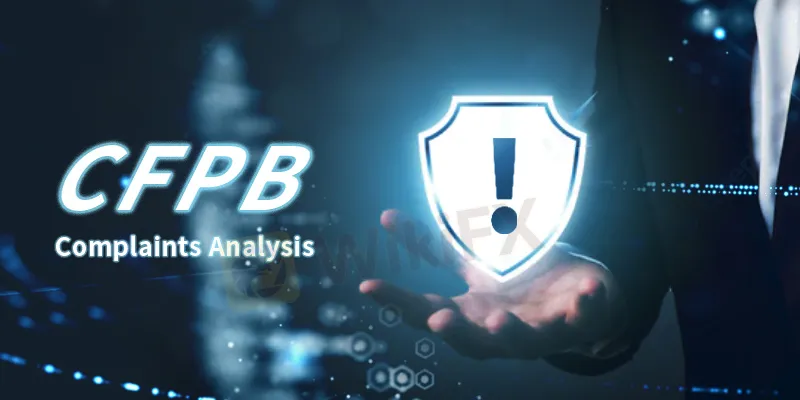简体中文
繁體中文
English
Pусский
日本語
ภาษาไทย
Tiếng Việt
Bahasa Indonesia
Español
हिन्दी
Filippiiniläinen
Français
Deutsch
Português
Türkçe
한국어
العربية
From Hacker Attack to Romance Scam: USA Crypto-assets Complaints are Soaring
Abstract:2022 Nov, the United States Consumer Financial Protection Bureau (CFPB) analyzed the month's complaints submitted to it and found that fraud, theft, hacks, and scams are significant problems in the crypto-asset market.

From October 2018 to September 2022, the CFPB received more than 8,300 crypto-assets complaints, most of which occurred in the past two years.
While the industry has been growing steadily since 2020 (cryptocurrency winter aside), complaints appear to be increasing exponentially compared to the previous two years.
The CFPB, established in 2011, is the U.S. government agency responsible for consumer protection in the financial sector. In the Bureau's report, it found that the top issue among all digital asset complaints was “fraud and scams,” which accounted for 40% of complaints during the four years under review, followed by “transaction issues” (25%) and “Money was not available when promised” (16%).
According to the report, “This issue appears to be getting worse, as fraud and scams make up more than half of 'virtual currency' complaints received thus far in 2022”. And it also emphasized that “Some consumers stated that they have lost hundreds of thousands of dollars due to unauthorized account access.”
Approches under Development to Address some of the Issues
The CFPB doubted digital asset platforms and providers and believed that the prevalence of fraud complaints raises the question of whether crypto-asset platforms are effective in identifying and blocking fraudulent transactions. Despite the security potential of certain digital assets, they could still fall victim to a range of fraud, scams, and hacks, but there were approaches in development that could address some of these issues.
In October, the BSV Bitcoin Association launched a software tool called Blacklist Manager that allows miners to freeze digital assets on the BSV blockchain after receiving a court order or such document.
In June, Tulip Trading Limited (TTL) and the Bitcoin Association settled Dr. Craig Wright's landmark lawsuit which claims that blockchain developers shall own a fiduciary and tortious liability to their users - forcing developers to take action when user tokens were lost or stolen. While the settlement agreement did not cover any particular token, it did set the base for future enforcement of regulations related to tokens lost or stolen.
Before these methods become more refined and widely available, the CFPB summarized its analysis and listed the key facts and risks for consumers of digital assets to consider:
· Crypto-assets are a common target for hacking.
· Important terms and clarifications are often buried in the Terms and Conditions.
· Arbitration clauses and class action bans may limit dispute options.
· The value of crypto-assets have and will likely continue to fluctuate greatly.
· Transactions may not be as private as imagined.
· The use of crypto-assets may violate sanctions.

Disclaimer:
The views in this article only represent the author's personal views, and do not constitute investment advice on this platform. This platform does not guarantee the accuracy, completeness and timeliness of the information in the article, and will not be liable for any loss caused by the use of or reliance on the information in the article.
Read more

Top 10 Trading Indicators Every Forex Trader Should Know
Master the top 10 Forex trading indicators to analyze real-time Forex quotes, trends, and market signals. Learn strategies to boost accuracy and avoid mistakes.

Geopolitical Events: What They Are & Their Impact?
You've heard many times that geopolitical events have a significant impact on the Forex market. But do you know what geopolitical events are and how they affect the FX market? Let us learn about it today.

Why Do You Feel Scared During Trade Execution?
Trade execution is a pivotal moment for traders. It is when analysis turns into action, and potential profits or losses become reality. However, for many traders, this moment is accompanied by fear. Why does this happen, and how can you address it?

Malaysian Influencer Detained in Taiwan Over Alleged Role in Fraud Scheme
Malaysian influencer Hu Chang Mun, widely known as Ady Hu, has been detained in Taiwan for his alleged involvement in a fraudulent operation. The 31-year-old, who was reported missing earlier in December, was located by Taiwanese authorities after suspicions arose regarding his activities.
WikiFX Broker
Latest News
Geopolitical Events: What They Are & Their Impact?
Volkswagen agrees deal to avoid Germany plant closures
Top 10 Trading Indicators Every Forex Trader Should Know
WikiEXPO Global Expert Interview: Simone Martin—— Exploring Financial Regulation Change
TradingView Launches Liquidity Analysis Tool DEX Screener
MultiBank Group Wins Big at Traders Fair Hong Kong 2024
'Young investors make investment decisions impulsively to keep up with current trends' FCA Reveals
Why Do You Feel Scared During Trade Execution?
CySEC Settles Compliance Case with Fxview Operator Charlgate Ltd
Malaysian Influencer Detained in Taiwan Over Alleged Role in Fraud Scheme
Currency Calculator


